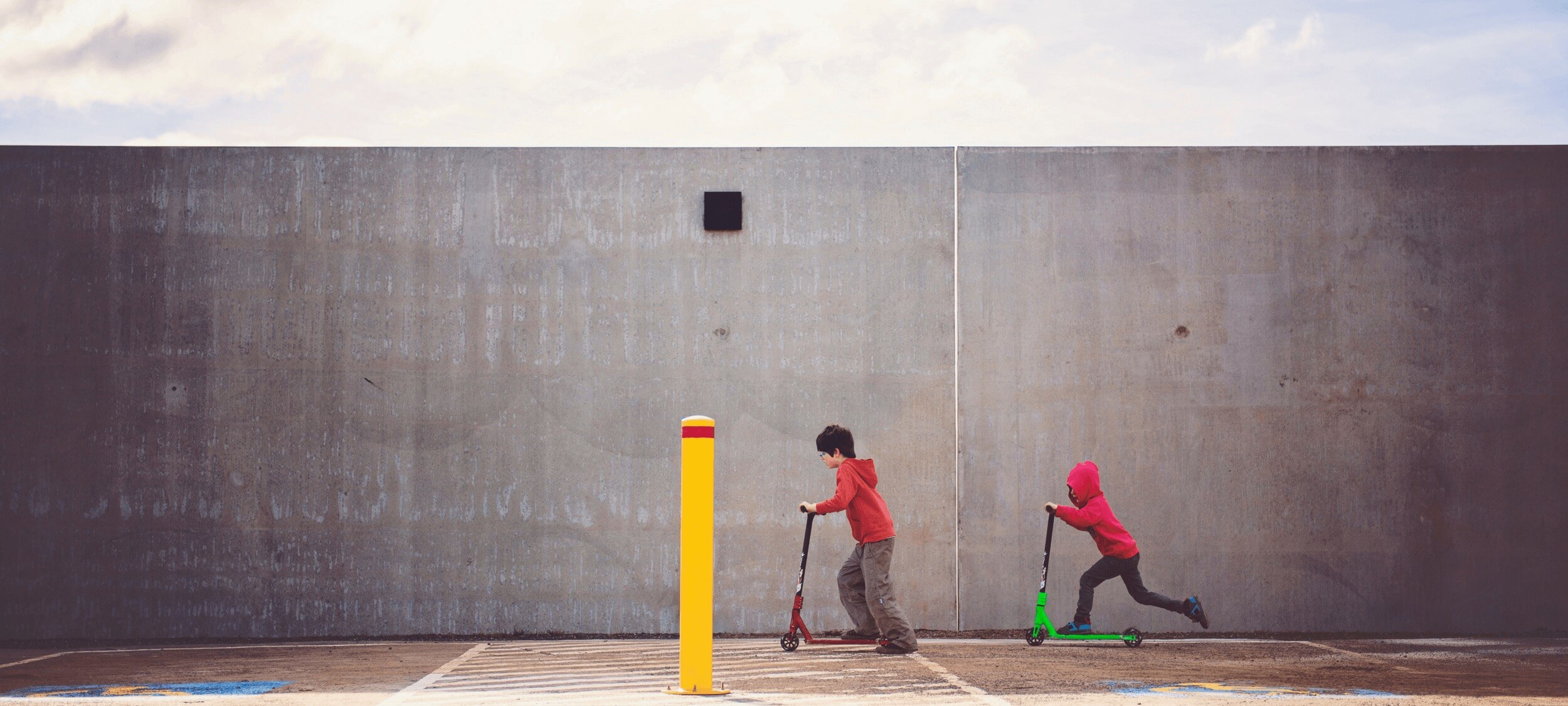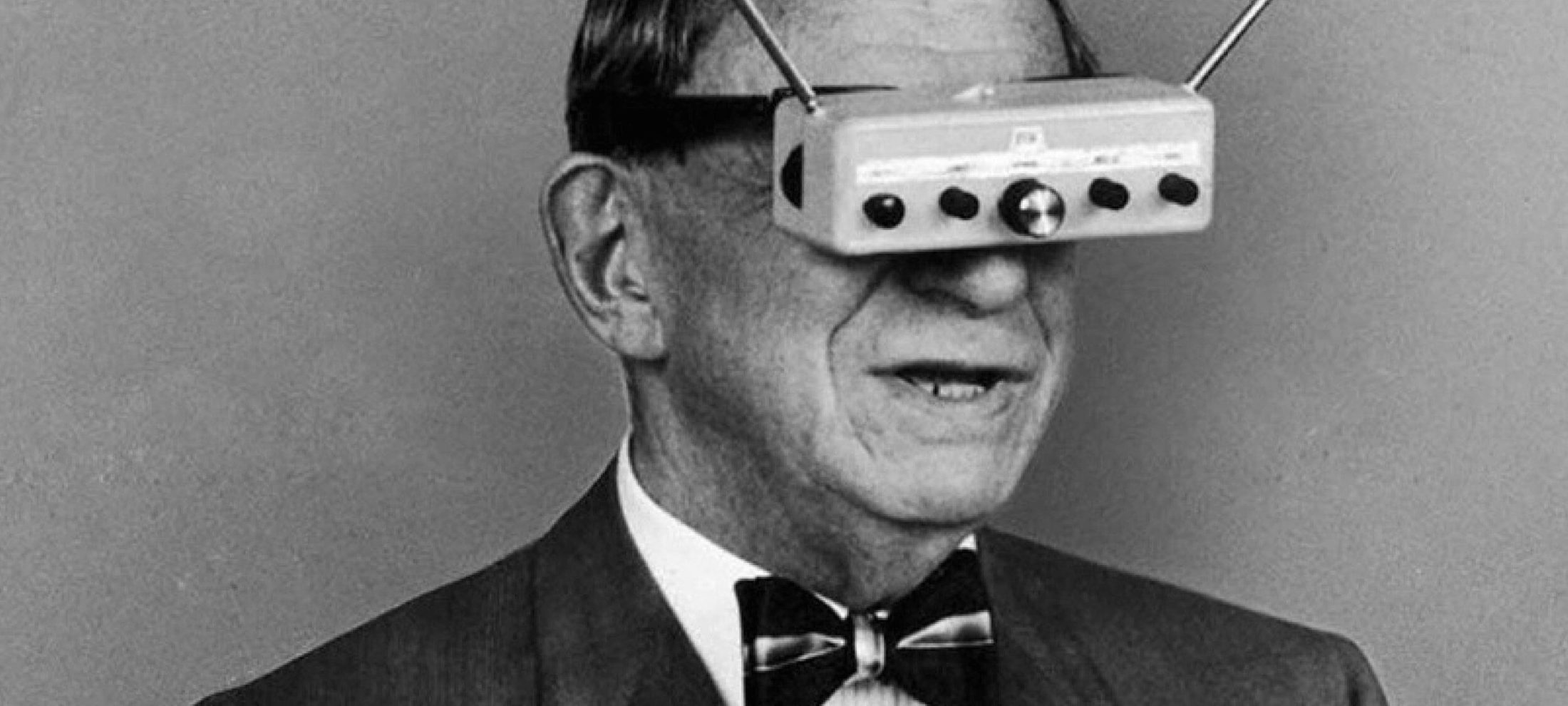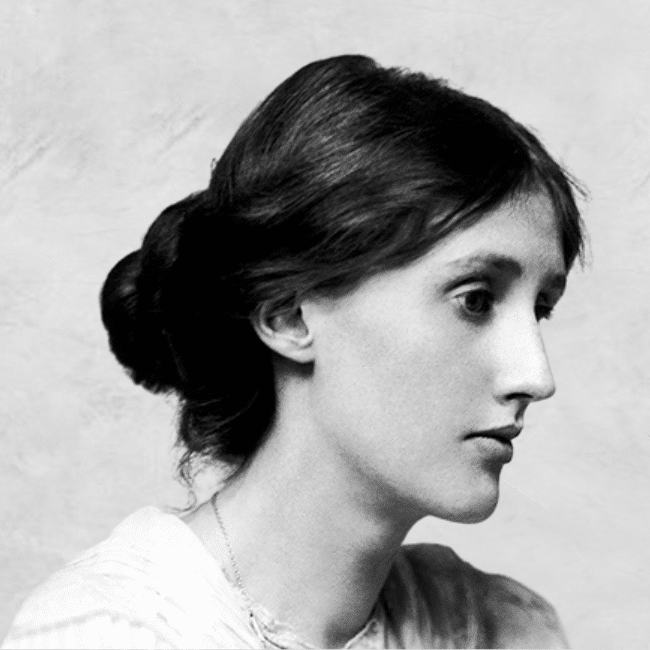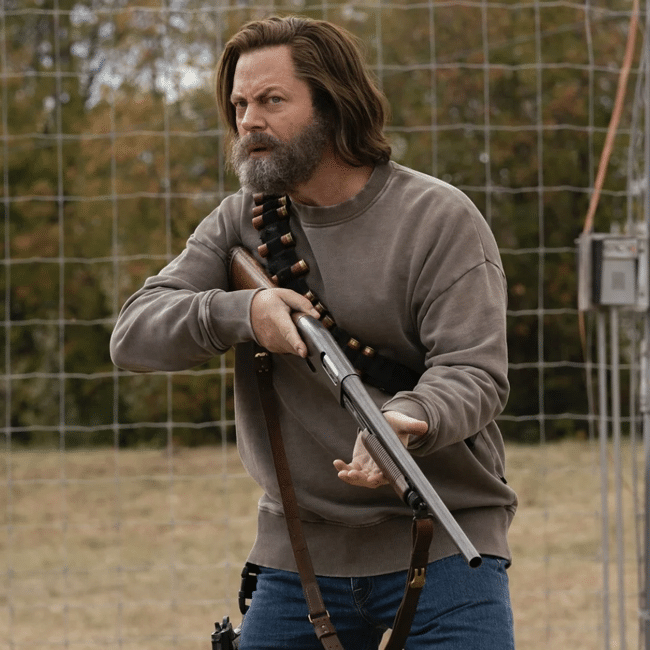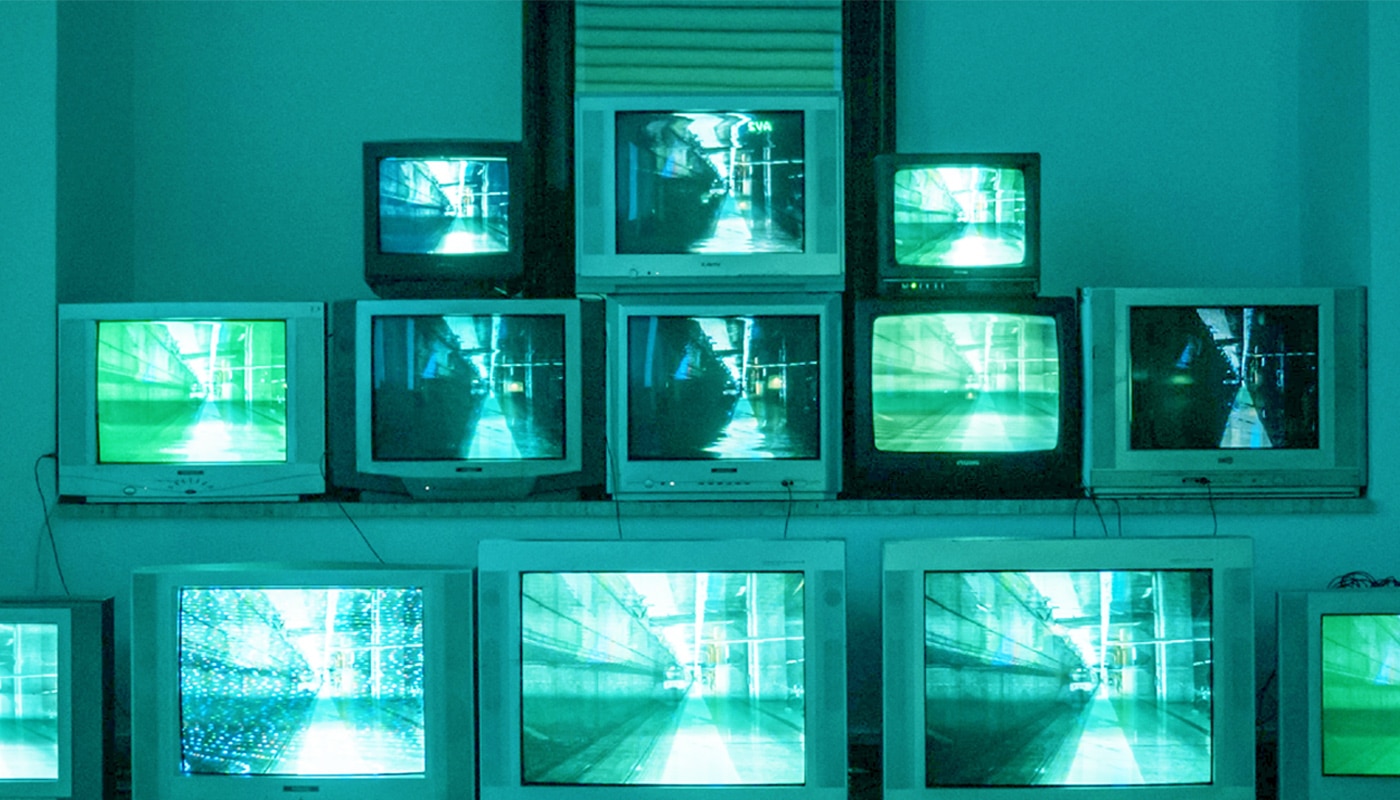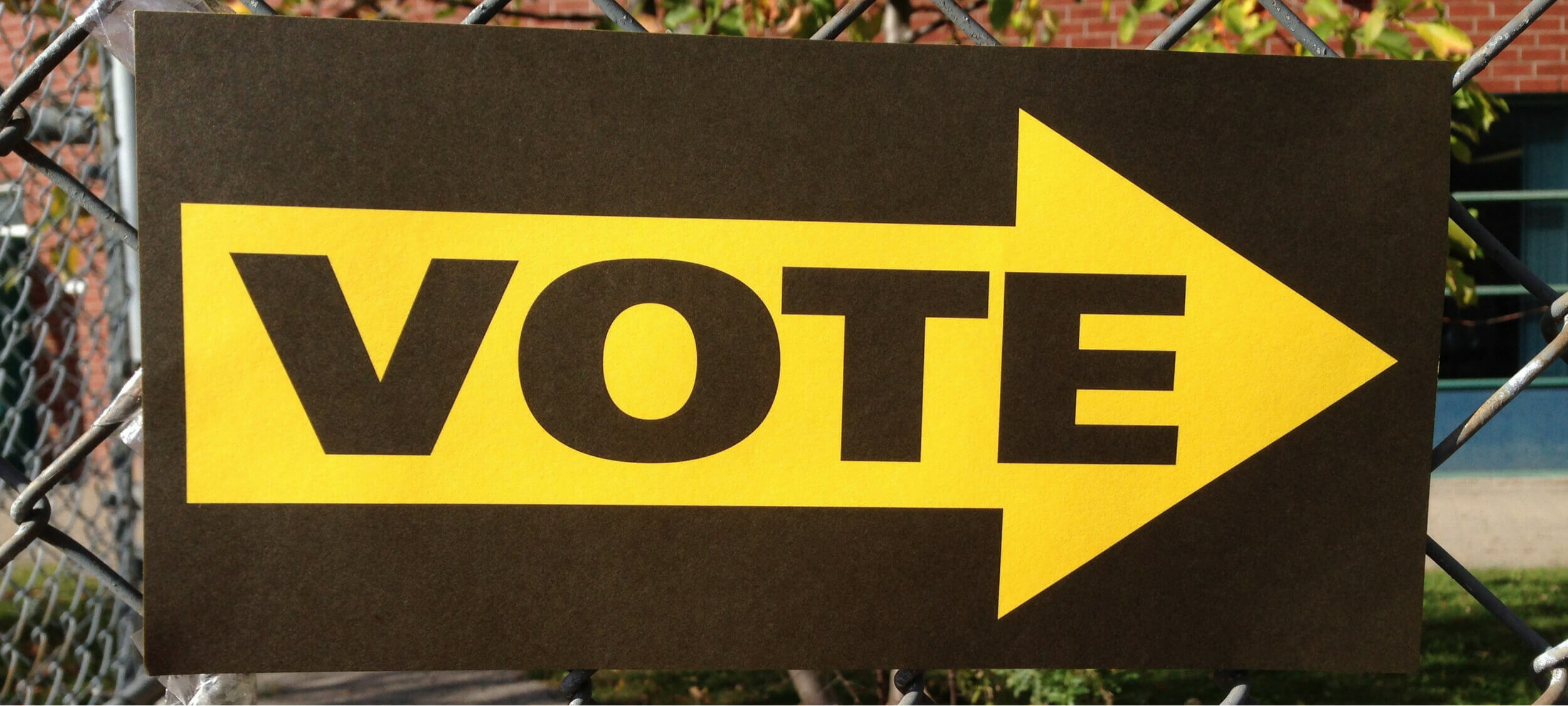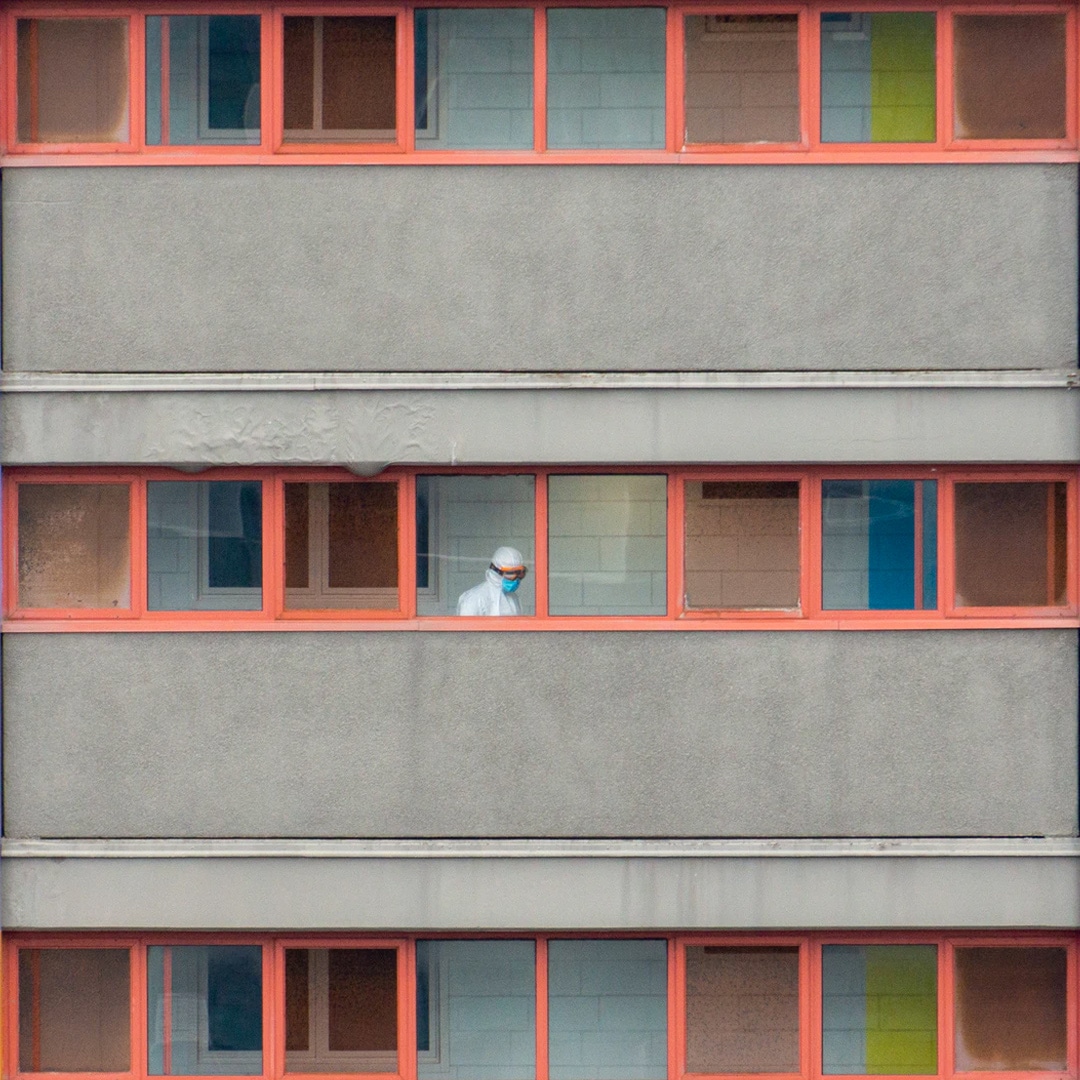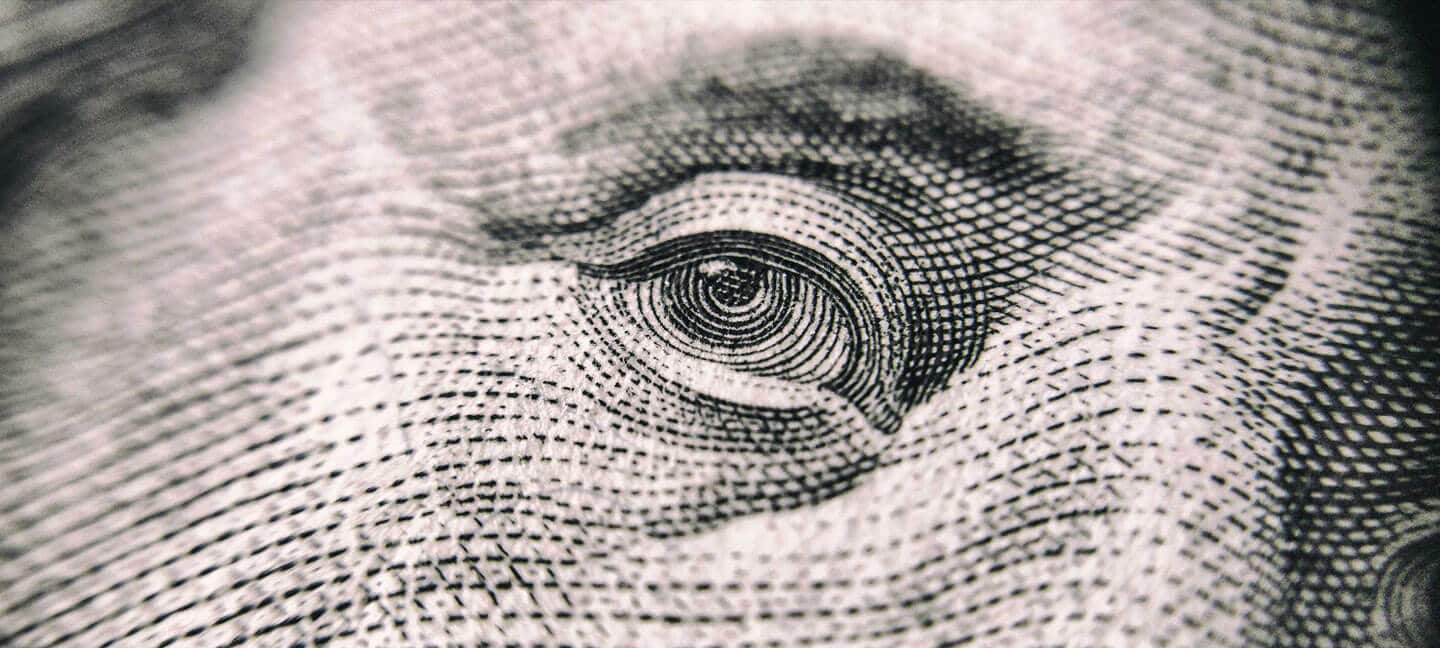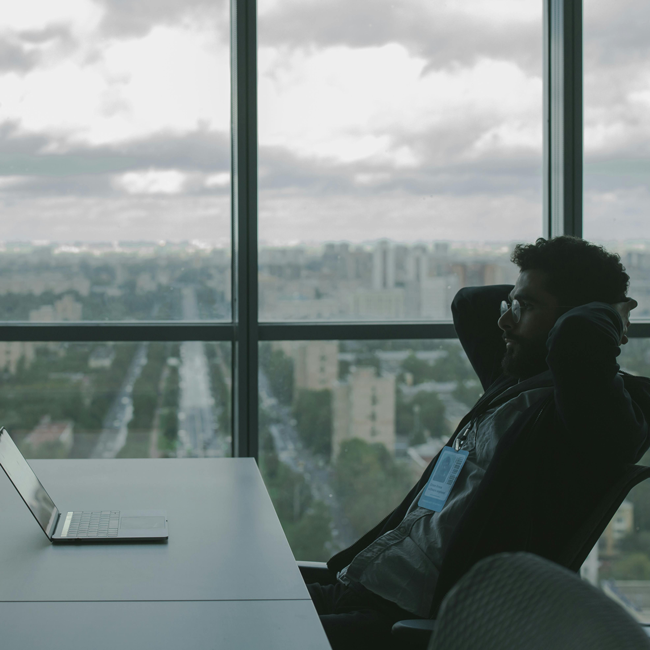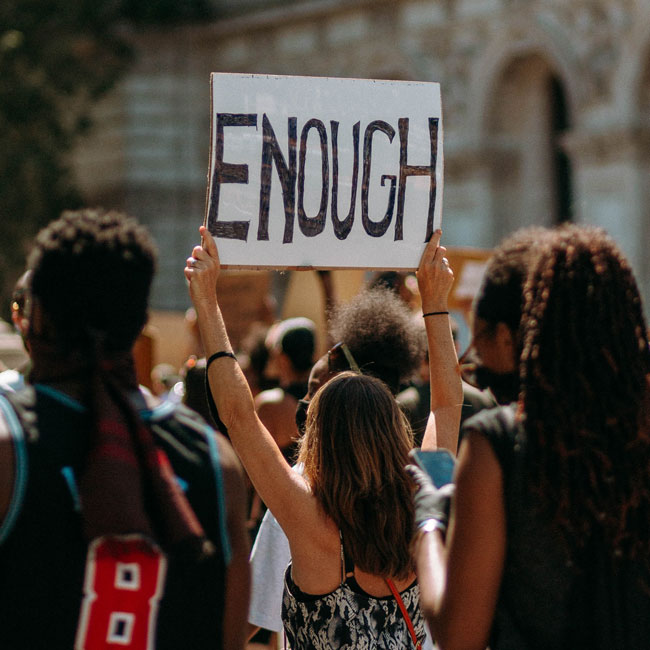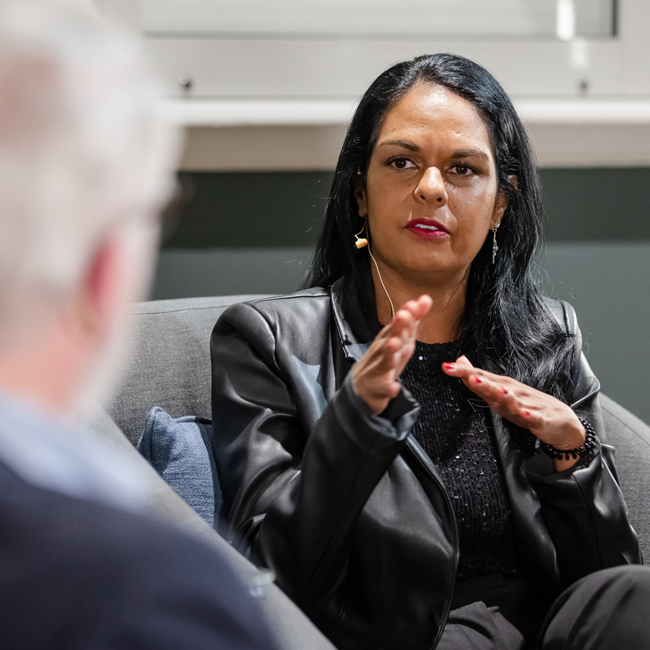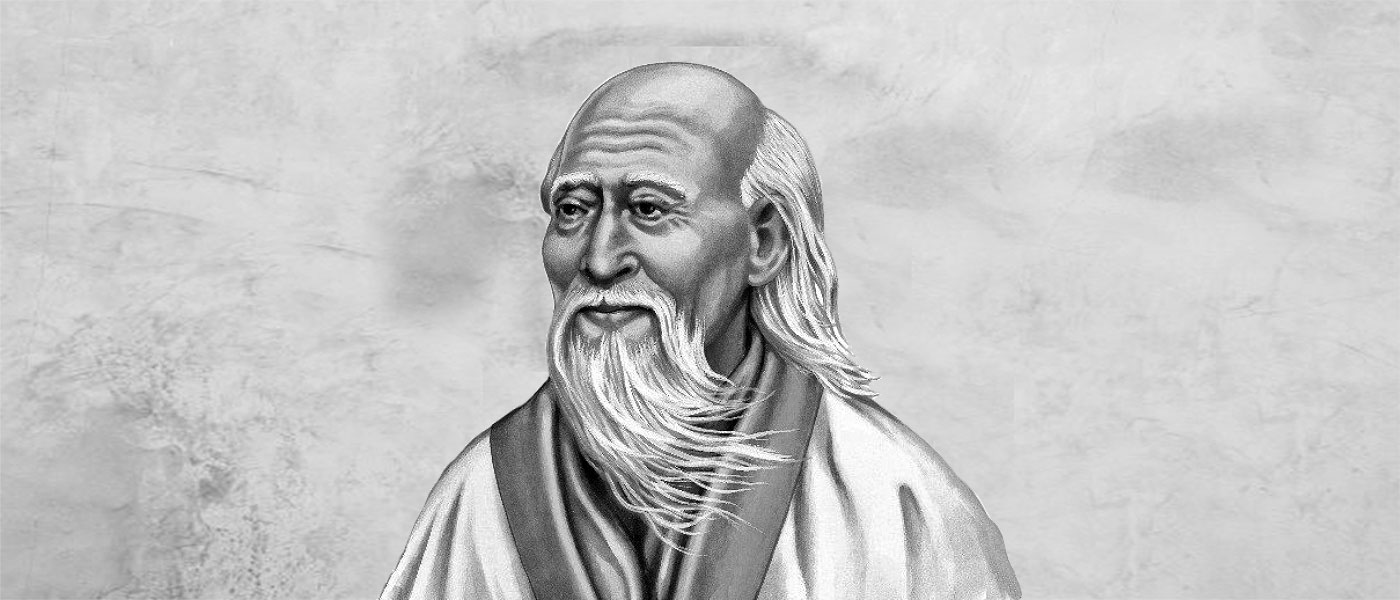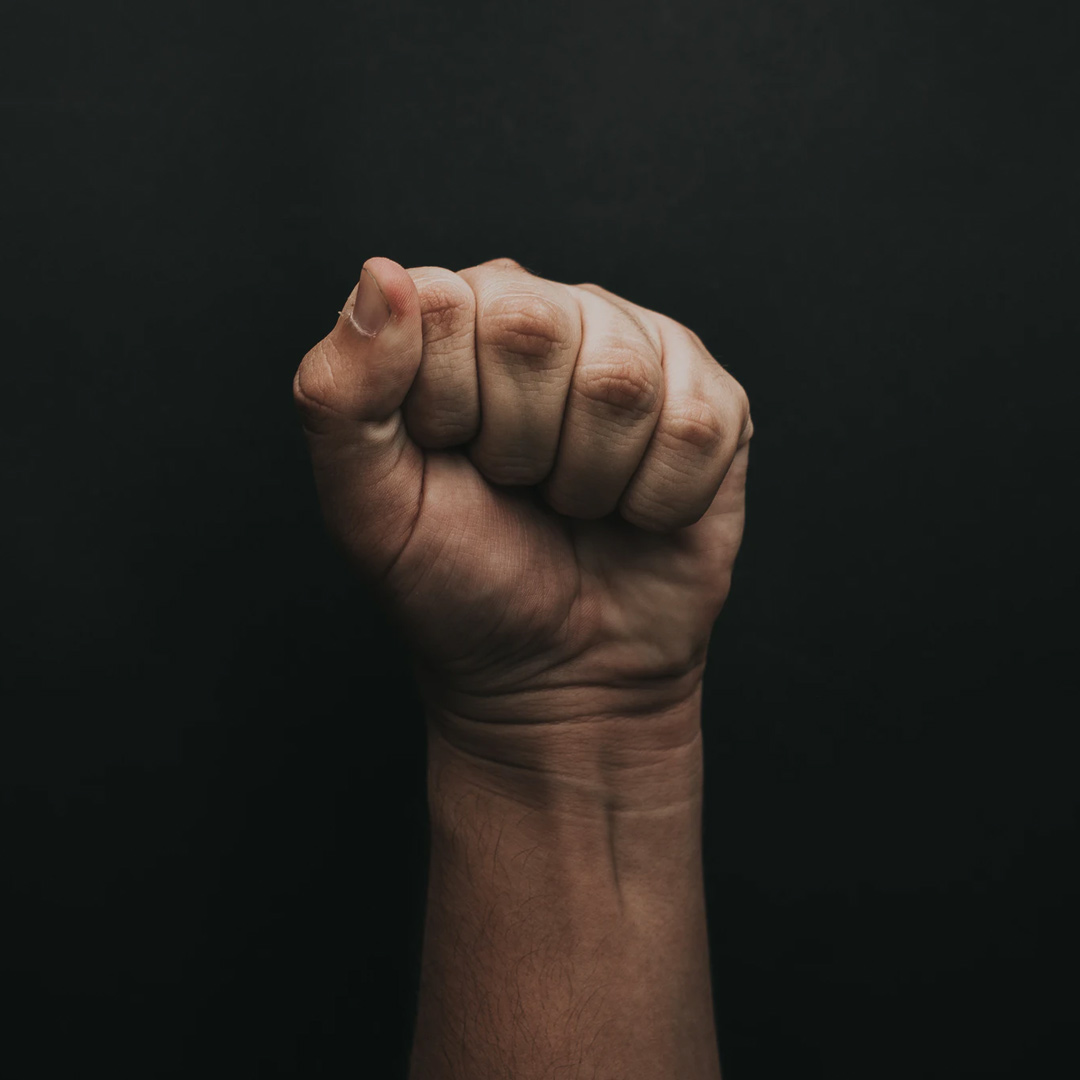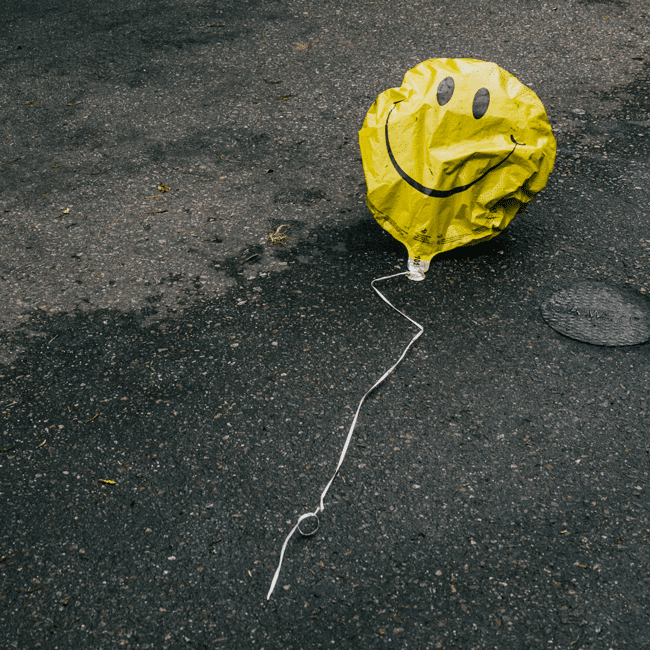Mutuality of care in a pandemic
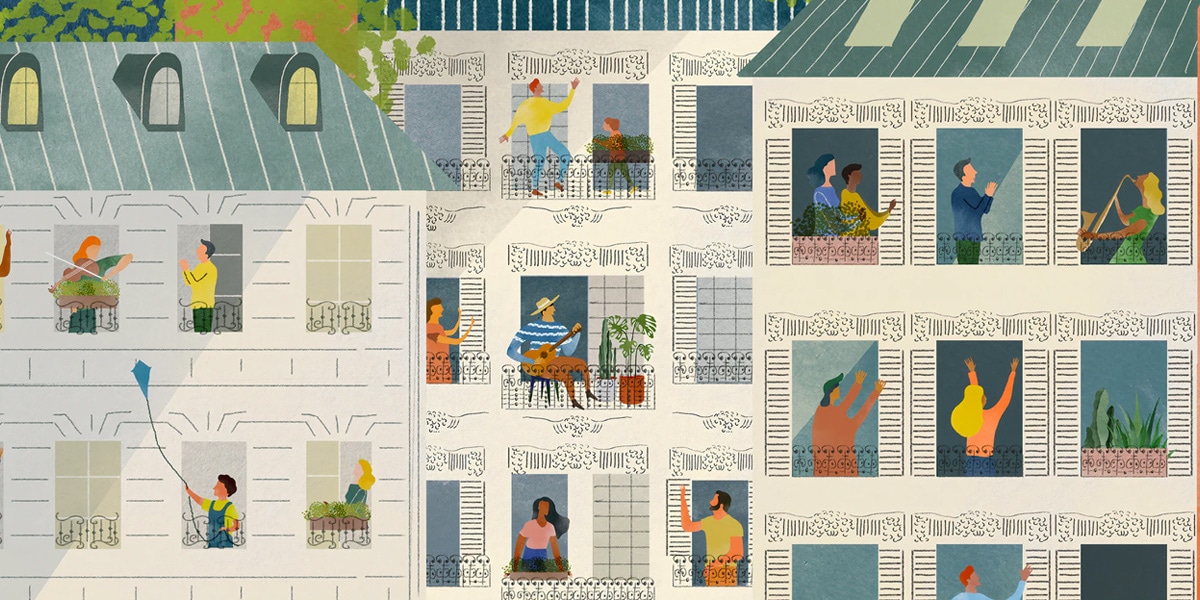
Mutuality of care in a pandemic
Opinion + AnalysisHealth + WellbeingRelationships
BY The Ethics Centre 9 SEP 2020
In the pandemic landscape, individual rights were challenged against a mutuality of care for our neighbours.
At the onset of the pandemic, The Ethics Centre Fellow, Dr Matt Beard, University of Queensland philosopher and health researcher Bryan Mukandi, University of Queensland, and Australian philosopher and Princeton PhD candidate Eleanor Gordon-Smith joined in conversation.
Together they discussed, dissected and explored a range of ethical issues rising during the early stages of the pandemic. This extract from the discussion considers Carol Gilligan’s theory around the ethics of care, and in particular her ideas around the mutuality of care and the idea that individual actions impact the whole.
Matt Beard, TEC Fellow:
One of the things that I keep coming back to, is this quote from the feminist philosopher, Carol Gilligan, who championed an approach, “the ethics of care”. She talks about this idea that we live on a trampoline, and whenever we move it kind of affects everybody else in the same way, it makes other people wobble, your activities cause discomfort to others.
And one of the things that this pandemic has crystallized for me is this sense that, this whole idea of this atomized individual with rights that cluster them off and divide us from other people, is kind of illusory. We are radically dependent on other people, we have this interdependence and these mutual obligations that inform our moral response.
And that got me thinking about how difficult it can be to muster that sense of mutual obligation. In a society that does just talk so heavily about ourselves as individuals, we’ve been conditioned to think about ourselves in almost exactly the opposite way to the way that this response requires us.
Have I set this up in the right way? Is it true we’ve been conditioned in this way? How do you think about this?
Bryan Mukandi, Philosopher:
It’s really complex, because on the one hand I think you’re absolutely right. I love that metaphor of the trampoline, and I completely agree, this idea of this autonomous free liberal individual, it just doesn’t stand up to scrutiny. But at the same time, on the other hand, the fractiousness and fracturedness we’re witnessing in the US applies here too, in some really interesting ways, right.
So, yes, we’re all on this trampoline, but the real estate that you occupy on that trampoline makes the world of difference. And we have a kind of social structure, social organisation where there’s an investment in occupying good real estate [so] that when something happens – a natural disaster, a fire, floods, a pandemic – there’s an investment in being in a position of being able to enact something like that illusory autonomy.
I think about Martin Luther King’s idea of an inextricable “network of mutuality”. But he raises this in a sort of moment where African Americans are in a particular kind of relationship with white America. He acknowledges that there’s this mutuality, there’s this connection, but the nature of this connection is one that’s really detrimental to some groups of people as opposed to others.
And I also think about Frantz Fanon contribution to Hegel’s dialectic of recognition. This idea that our selfhood emerges in relationship with others, it’s like it falls apart in the colony because in the colony the white doesn’t want the colonized recognition, they want their labour.
So I think, while on the one hand, COVID has shown us that this ideal of autonomy – it doesn’t stand up to scrutiny. It’s in really interesting ways though, I think it may, at least for some groups of people, legitimate this project of striving towards that kind of autonomy of occupying the best possible real estate on that trampoline, as opposed to reconfiguring the trampoline itself.
Eleanor Gordon Smith, Philosopher:
It’s a really good question.
And like Bryan, I think it’s a very complex one and one that we’re not going to compress either now or in a pandemic writ large. One thing I think that is kind of a shame for me living in the states and seeing the way the states is covered internationally is the way that a lot of the pressure to reopen is construed in these kinds of individual autonomous terms.
I have a lot of family and a lot of friends who I think are really genuinely very concerned about my proximity to New York at the moment. They feel like crisis, real proper, ‘everyone’s dead’ crisis, like blood –in–the–streets–type crisis, is right around the corner.
And my suspicion about why they feel like that is that they’ve seen these videos of women hanging out of cars at intersections blowing the horn at medical workers or protesters walking into government buildings, people with the American flag painted on their face, holding banners about the right to return to work.
These people are both, they’re a very individualistic face of this movement and the movement that they claim to be espousing is very individualistic. They’re making claims about people’s individual rights to get back to work and they are doing so claiming to speak as individuals.
But one of the things that I think it’s a shame that [coverage] obscures is that the pressure to reopen America comes from the fact that it’s a non-accidental feature of the US American system and the US economic system that it wants people to be back at work more than it wants them to be safe and well.
We encounter that from the mouths of individuals who present themselves as autonomous in saying things like ‘the cure cannot be worse than the disease’, but the pressure isn’t just from rhetoric or from individuals, it’s from the way the system is set up.
You look at the kinds of costs and debts that Americans incur just for functioning. Like if you get sick, that costs money and that creates debt, if you have a higher education system, even one that is continuing on Zoom at the moment, that costs money and that causes debt.
Both of these things coupled with just the usual systems of credit means that most Americans are in eye–watering amounts of debt, and then debt has interest which means that you’re incentivized to get back to work as fast as possible and you put people in a position where it’s not only rational but critical to get back to earning money because it costs money to earn less.
The way the system functions is such that not only do you create all these pressures, it’s then coupled with this narrative of individualism, telling people that both the source of the problem and the nearest solution is to be conceived of in these individualistic autonomous senses.
It’s a real shame when we reinforce and circulate these images of Americans protesting in the way that they are right now, because we obscure the fact that even these apparently maniacally individual faces are in fact the product of the same system that crushes the rest of us.
This is an extract from a live-streamed event. Watch the full conversation from FODI Digital event, Ethics of the Pandemic, below. Don’t miss our next live-stream events at www.festivalofdangerousideas.com.
Ethics in your inbox.
Get the latest inspiration, intelligence, events & more.
By signing up you agree to our privacy policy
You might be interested in…
Opinion + Analysis
Relationships
Can we celebrate Anzac Day without glorifying war?
Opinion + Analysis
Relationships, Society + Culture
Five dangerous ideas to ponder over the break
Opinion + Analysis
Relationships
Agree to disagree: 7 lessons on the ethics of disagreement
Opinion + Analysis
Relationships
We already know how to cancel. We also need to know how to forgive
BY The Ethics Centre
The Ethics Centre is a not-for-profit organisation developing innovative programs, services and experiences, designed to bring ethics to the centre of professional and personal life.
Living well or comfortably waiting to die?

Living well or comfortably waiting to die?
Opinion + AnalysisHealth + WellbeingRelationships
BY Matthew Beard The Ethics Centre 25 AUG 2020
It can be argued that life isn’t something we have, it’s something we do.
It is a set of activities that we can fuse with meaning. There doesn’t seem much value to living if all we do with it is exist. More is demanded of us.
One of my favourite quotes about living comes from French Philosopher, Jean Jacques Rousseau.
“To live is not to breathe but to act. It is to make use of our organs, our senses, our faculties, of all the parts of ourselves which give us the sentiment of our existence. The man who has lived the most is not he who has counted the most years but he who has most felt life. Men have been buried at one hundred who have died at their birth.”
Rousseau’s quote isn’t just sage; it’s inspiring. It makes us want to live better – more fully. It captures an idea that moral philosophers have been exploring for thousands of years: what it means to ‘live well’ – to have a life worth living.
Unfortunately, it also illustrates a bigger problem. Because we tend to interpret Rousseau’s guide to ‘Really Good Living’ in a particularly narrow way – that it’s all about vitality, seizing the day and YOLO.
This is a reality that professionals working in the aged care sector should know all too well. They work directly with people who don’t have full use of their organs, their faculties or their senses.
Months ago, before the pandemic, I presented Rousseau’s thoughts to a room full of aged care professionals. They felt the same inspiration and agreement that I felt.
That’s a problem.
If the good life looks like a robust, activity-filled life, what does that tell us about the possibility for the elderly to live well? And if we don’t believe that the elderly can live well, what does that mean for aged care?
The findings from the recent Aged Care Royal Commission reveal galling evidence of misconduct, negligence and at times outright abuse. The most vulnerable members of our communities, and our families, have been subject to mistreatment due in part to a commercial drive to increase the profitability of aged care facilities at the expense of person-centred care.
More recently, we have seen aged care at the centre of the Covid-19 pandemic. Over 250 deaths have been recorded in facilities across Australia from the virus and our State and Federal governments are fighting out responsibility.
Elderly residents have been prevented from being treated in hospitals, their facilities have been drastically understaffed and public commentators have wondered whether we ought simply to allow more of them to die.
Absent from the discussion thus far has been the question of ‘the good life’. That’s understandable given the range of much more immediate and serious concerns facing the aged care sector, but it is one that cannot be ignored, despite the urgent matters before us.
Whilst leaders and decision-makers must be held accountable, there is a deeper sense of shared responsibility we should all carry when it comes to our attitudes toward ageing and aged care.
In 2015, celebrity chef and aged care advocate Maggie Beer told The Ethics Centre that she wanted “to create a sense of outrage about [elderly people] who are merely existing”. Since then she has gone on to provide evidence to the Royal Commission because she believes that food is about so much more than nutrition. It’s about memory, community, pleasure and taking care and pride in your work.
Consider the evidence given around food standards in aged care. There have been suggestions that uneaten food is being collected and reused in the kitchens for the next meal; that there is a “race to the bottom” to cut costs of meals at the expense of quality, and that the retailers selling to aged care facilities wildly inflate their prices. The result? Bad food for premium prices.
We should be disturbed by this. This food doesn’t even permit people to exist, let alone flourish. It leaves them wasting away, undernourished. It’s abhorrent. But what should be the appropriate standard for food within aged care? How should we determine what’s acceptable? Do we need food that is merely nutritious and of an acceptable standard, or does it need to do more than that?
Answering that question requires us to confront an underlying question: Do we believe aged care is simply about providing people’s basic needs until they eventually die?
Or is it much more than that? Is it about ensuring that every remaining moment of life provides the “sentiment of existence” that Rousseau was concerned with?
When you look at the testimony provided to the Aged Care Royal Commission, a clear answer begins to emerge. Alongside terms like ‘rights’, ‘harms’ and ‘fairness’ –which capture the bare minimum of ethical treatment for other people – appear words such as ‘empathy’, ‘love’ and ‘connection’.
These words capture more than basic respect for persons, they capture a higher standard of how we should relate to other people. They’re compassionate words. People are expressing a demand not just for the elderly to be cared for but to be cared about.
Counsel assisting the Royal Commission, Peter Gray QC, recently told the commission that “a philosophical shift is required, placing the people receiving care at the centre of quality and safety regulation. This means a new system, empowering them and respecting their rights.”
It’s clear that a philosophical shift is necessary. However, I would argue that what’s not clear is if ‘person-centred care’ is enough. There is an ageist belief embedded within our society that all of the things that make life worth living are unavailable to the elderly.
As long as we accept that to be true, we’ll be satisfied providing a level of care that simply avoids harm, rather than one that provides for a rich, meaningful and satisfying life.
Unless we are able to confront the underlying social belief that at a certain age, all that remains for you in life is to die, we won’t be able to provide the kind of empowerment you felt reading Rousseau at the start of this article.
What it will do is provide a better version of what we already believe – that once you are at a certain age and stage of life, ‘living’ is no longer a real option? You must settle for existing.
At this stage, we can pump you full of our care, love, empathy and respect – and most people accept that we should do that – but you are no longer living for yourself. You are waiting, as humanely as possible, to die.
Unless we confront this deeper belief, any positive movement in aged care will struggle to provide residents with what we all hope for – a life worth living.
*This is an edited version of an article first published on 10th September 2019
Ethics in your inbox.
Get the latest inspiration, intelligence, events & more.
By signing up you agree to our privacy policy
You might be interested in…
Opinion + Analysis
Relationships
How to help your kid flex their ethical muscle
Explainer
Relationships
Ethics Explainer: Love and morality
Opinion + Analysis
Politics + Human Rights, Relationships
What do we want from consent education?
Explainer
Relationships
Ethics Explainer: The Sunlight Test
BY Matthew Beard
Matt is a moral philosopher with a background in applied and military ethics. In 2016, Matt won the Australasian Association of Philosophy prize for media engagement. Formerly a fellow at The Ethics Centre, Matt is currently host on ABC’s Short & Curly podcast and the Vincent Fairfax Fellowship Program Director.
BY The Ethics Centre
The Ethics Centre is a not-for-profit organisation developing innovative programs, services and experiences, designed to bring ethics to the centre of professional and personal life.
What's the use in trying?

What’s the use in trying?
Opinion + AnalysisPolitics + Human RightsRelationships
BY Eleanor Gordon Smith The Ethics Centre 24 AUG 2020
In early 2020 I sat in a friend’s house on the coast of New South Wales listening to smoke alarms go off in canon, triggered by the air itself, thick with smoke from the active fronts of the worst bushfire season in living memory.
The roads were lined with scorched animals and the climate crisis seemed as inevitable as it did cataclysmic. It was unthinkable then that this moment of apparently superlative awfulness would, in a matter of months, recede to just one more entry in a year-long list of suffering, death, and massive-scale crisis.
The lucky of us stayed inside afraid for months. The unlucky died, or lost loved ones and could not go to their funerals. There was widespread and systematic police violence against black people and against the people who protested it. USD $3.6 trillion was wiped off the stock market in one week.
The first six months of 2020 presented an unusually literal illustration of an old ethical question: why bother when the conclusion feels foregone?
What many of us felt about the climate in January was a well-known phenomenon: the fatigue of feeling useless when we felt we could not rely on the powerful to make changes or on other people to do their part. This feeling was quickly matched by parallels in resistance to systemic racism, in fighting an economic downturn and even in pandemic compliance.
Early on in the COVID-19 outbreak, data modelling revealed that social distancing would only work if 8 out of 10 of us followed the rules. If only 70% of us stood six feet apart, washed our hands, and stayed inside for weeks on end, it would be as though none of us had. To the misanthropist who felt that 30% of people would surely disregard the rules, a motivational gap loomed: why do what I can to help, when I’m not confident it will.
Even to the most resiliently motivated, parts of 2020 posed this problem. Hundred-thousand strong protests in the United States were not enough to prevent the deaths of more unarmed black people, nor to prevent protestors themselves from being pepper-sprayed at close range.
The indefatigability of the protests seemed met by the indefatigability of the problem. For many people it became impossible to feel calm or ordered anywhere as long as case numbers rose. So it seemed foregone that our homes would not feel calm or ordered either, and the motivation to improve them frayed in proportion to the dishes in the sink.
The philosopher and psychologist William James knew that certain beliefs can be self-validating; that confidence in outcomes, however, we come by it, can make itself well placed. The sailors who think they can pull the heavy rope are more likely to summon the gusto and collective coordination required to make it the case that they can. This first half of 2020 was a vivid illustration of the photonegative; the fact that uncertainty about outcomes can be enough to puncture our drive to pursue them.
So what is there to be done? Few of us believe that this pessimism or uncertainty in fact means that it is not worth protesting, or washing our hands, or doing the dishes. We still rationally endorse that we ought to do these things. But it becomes a wrench, an act of shepherding ourselves, parent-like, and it wears us down. It leads us to misanthropy.
An answer lies in looking more closely at one facet of what 2020 has cost us. We lost the most unthinking parts of our lives; the well-worn routine of the drive home or the setup at the gym, the clockwork Wednesday night choir, the disappearance into a team practicing a physical skill.
These were moments where what we did was not to achieve, or to think, but to be in a process. It was immaterial to us whether we achieved victory or even improvement, since our commitment to doing them was not dependent on whether we did. What we wanted was to be absorbed, to be a creature who acts.
We are, unavoidably, creatures who act. But as philosopher Mark Schroeder has noted, there is an asymmetry between our options in thought and our options in action. We have three options about what to think: we can believe what is on offer, reject it, or withhold judgement. But in action we have only two options; act or do not. There is no way to be in the world that avoids this two-prong choice.
When we realize this, we can shift our focus in a way that avoids futility fatigue. Our moral duty to act – and so too, our motivation – need not be entirely derived from what will happen once we do. It may be that what we owe each other is action itself, and effort itself.
In turn, this can release us from some pressure that comes with knowing that our goals will be difficult to achieve and fragile once we get them. We can simply aim at the action itself. We can find in resistance, in participation, and in care, a goal which is not about the altering of the world but about the observation of the act itself.
In this state, our uncertainty is no longer a threat to our motivation. With this as our focus and our source of energy, we may find that we are, in the end, more effective at altering the world.
You can contact The Ethics Centre about any of the issues discussed in this article. We offer free counselling for individuals via Ethi-call; professional fee-for-service consulting, leadership and development services; and as a non-profit charity we rely heavily on donations to continue our work, which can be made via our website. Thank you.
Ethics in your inbox.
Get the latest inspiration, intelligence, events & more.
By signing up you agree to our privacy policy
You might be interested in…
Opinion + Analysis
Health + Wellbeing, Relationships, Science + Technology
When do we dumb down smart tech?
Opinion + Analysis
Relationships
The philosophy of Virginia Woolf
Opinion + Analysis
Relationships, Society + Culture
Bring back the anti-hero: The strange case of depiction and endorsement
Opinion + Analysis
Politics + Human Rights, Climate + Environment
What we owe each other: Intergenerational and intertemporal justice
BY Eleanor Gordon Smith
Eleanor Gordon-Smith is a resident ethicist at The Ethics Centre and radio producer working at the intersection of ethical theory and the chaos of everyday life. Currently at Princeton University, her work has appeared in The Australian, This American Life, and in a weekly advice column for Guardian Australia. Her debut book “Stop Being Reasonable”, a collection of non-fiction stories about the ways we change our minds, was released in 2019.
BY The Ethics Centre
The Ethics Centre is a not-for-profit organisation developing innovative programs, services and experiences, designed to bring ethics to the centre of professional and personal life.
FODI digital returns for three dangerous conversations

FODI digital returns for three dangerous conversations
Opinion + AnalysisSociety + Culture
BY The Ethics Centre 20 AUG 2020
The Festival of Dangerous Ideas traverses the cracks of our society across three flagship digital events this September and October.
We are living through a period of heightened fear and anxiety. The global pandemic has superheated three systemic problems that were already set to boil: government control of information, racism and climate change.
The three sessions will be streamed live on festivalofdangerousidea.com, with live interaction and questions from the audience. Ticket prices range from $10-$15 or $30 for all three conversations.
Our Festival Director, Danielle Harvey, has carefully curated these three speakers to for this dangerous time. In speaking about the programming, she said “the fallout from the pandemic is changing politics, economics and the every day so significantly.
FODI is a provocateur of big thinking, and it’s back to ask us: what should we be doing now to prepare for a post-pandemic landscape? And has COVID-19 offered opportunity or hindrance to tackling some of the biggest issues of our time in a new and profound way?”
Live stream sessions include:
-
Dangerous Fictions, Marcia Langton, 10 September 2020, 7PM
Langston is a fearless truth-teller who challenges the dangerous orthodoxies of a society that seems incapable of making peace with the truth of its own past.
-
Surveillance States, Edward Snowden, 24 September 2020, 7PM
Snowden asks us to consider the possibility that we may have more to fear from our own governments than from any external threat – and that our liberties have already been lost.
-
The Uninhabitable Earth, David Wallace-Wells, 11 October 2020, 11am
Wallace-Wells says there is no going back from the climate crisis and suggests the greatest challenge is navigating the future in a world that can’t agree how to face it together.
Challenging us all to stop and pay attention, Executive Director of The Ethics Centre and Co-Founder of FODI, Simon Longstaff, said these are pivotal issues are demanding creative solutions.
“The urgency of the moment might seem to demand every moment of our attention, the reality is that this is precisely the time when we need to look beyond the boundaries of the pandemic and come together and … think!”
These events follow on from the first FODI digital series in May which featured Norman Swan, David Sinclair, Claire Wardle, Kevin Rudd, Vicky Xu, Masha Gessen and Stan Grant. Past conversations are available on demand via www.festivalofdangerousidea.com.
Ethics in your inbox.
Get the latest inspiration, intelligence, events & more.
By signing up you agree to our privacy policy
You might be interested in…
Opinion + Analysis
Society + Culture, Business + Leadership
How to tackle the ethical crisis in the arts
Opinion + Analysis
Relationships, Society + Culture
The ‘good ones’ aren’t always kind
Opinion + Analysis
Science + Technology, Society + Culture
The terrible ethics of nuclear weapons
Opinion + Analysis
Society + Culture
Arguments around “queerbaiting” show we have to believe in the private self again
BY The Ethics Centre
The Ethics Centre is a not-for-profit organisation developing innovative programs, services and experiences, designed to bring ethics to the centre of professional and personal life.
Whose home, and who’s home?

Whose home, and who’s home?
Opinion + AnalysisPolitics + Human RightsRelationships
BY Eleanor Gordon Smith The Ethics Centre 17 AUG 2020
Australian citizens who live overseas and want to return to Australia, with some exceptions, now have to pay for their mandatory two-week hotel quarantine.
This new rule applies for those returning to New South Wales or Queensland. It means that a single adult returning home must have AUD $3000 to pay for their stay. Last week New Zealand announced a similar policy: citizens returning home to stay less than 90 days will be charged for their quarantine.
Announcing the policy, NSW Premier Gladys Berijiklian said “Australian residents have been given plenty of time to return home, and we feel it is only fair that they cover some of the costs of their hotel accommodation”.
The locution of having “been given” time to return home sounded curious to many of us who reside overseas. We were unaware that living elsewhere had been a matter of taking.
In the comments sections of news articles about the announcement, the Premier’s sentiment was echoed by other Australians. A recurring theme appeared: overseas Australians who returned home now are being selfish to expect taxpayer help
What could fairness require, in a pandemic? It is not fair that some people will get COVID and others will not. It is not fair that some will die while others survive. These are circumstances where a question about fairness is simply not askable; there is only tragedy, which does not have a possible equitable distribution.
One way to be unfair in a pandemic might be to expose other people to risk. People arriving from overseas certainly do that, and it is crucial to Australia’s efforts to contain the coronavirus that it curbs the risk from international travellers. Like many other countries, Australia was within its rights to close its borders early to international travellers in recognition of this risk.
The very concept of citizenship, however, prohibits closing borders entirely. No matter where citizens ordinarily live, their government has a duty to allow them to cross the border of their home. This is what it means to be a citizen.
There is a problem of incommensurability here. How does the need to mitigate a biothreat weigh against the standing rights of citizens to cross a border? One is a value of rights and obligations; the other is a value of consequences and threat reduction. Neither of these values presents itself in a standardised unit to be compared against the other.
The question is not quite “how do we make a good decision?” but “which kind of good should we be interested in?”. This is a fairly common problem.
Not all of the things we want governments to provide can be coherently measured against each other, so when they come into conflict, it’s not clear how to even begin making the trade. Privacy against safety, health against freedom, service provision against non-interference.
The Government appears to have chosen fairness as the value to adjudicate between the two. The Premier described the policy as “only fair”, since “Aussies overseas have had three or four months to figure out what they want to do”. Prime Minister Scott Morrison echoed this, saying overseas Australians “obviously delayed [their] decision”, and Winston Peters of the New Zealand First Party said that asking taxpayers to pay for fellow citizens’ quarantine was “grossly unfair”.
There are two features of the decision that challenge the terms of fairness here. One is that it seems only to apply to Australians overseas. We would not, for instance, describe it as “only fair” to deny Medicare coverage to an Australian at home who contracted COVID-19 after breaking quarantine rules, even though there is an argument that this is ‘only fair’. Like the quarantine fee, it would mean that those who had ‘plenty of time’ to follow the rules did not impose a burden on the taxpayer when an emergency befell them.
The second is that it is not clear that fairness is the value we should default to in the midst of a global pandemic. In an article for Guardian New Zealand, Elle Hunt suggested that these policies are a failure of empathy. “Discriminating against all but the most wealthy members of the diaspora is a rare failure of not just compassion but imagination – to reach a more equal solution, and to imagine the painful personal circumstances in which it might be warranted.”
Empathy asks different things of a government than fairness. It asks for mercy and the maximum provision of services to those who are suffering. It asks for an imaginative capaciousness about what life is like for citizens whose jobs, families, friends and visas would have been in peril if they had returned earlier. It asks for magnanimity, forgiveness, and generosity.
Empathy may not be a viable long term guiding principle for a political party. But in a pandemic, we may find that the alternative language of fairness and moralising either loses its footing entirely or forces us to absurd conclusions.
“Only fair” was how the Premier described the policy, but we have more values than only fairness. A global emergency may be the time to use some.
You can contact The Ethics Centre about any of the issues discussed in this article. We offer free counselling for individuals via Ethi-call; professional fee-for-service consulting, leadership and development services; and as a non-profit charity we rely heavily on donations to continue our work, which can be made via our website. Thank you.
Ethics in your inbox.
Get the latest inspiration, intelligence, events & more.
By signing up you agree to our privacy policy
You might be interested in…
Opinion + Analysis
Politics + Human Rights
Why compulsory voting undermines democracy
WATCH
Relationships
Unconscious bias
Opinion + Analysis
Relationships
Violent porn and feminism
Opinion + Analysis
Health + Wellbeing, Relationships
Is it ok to visit someone in need during COVID-19?
BY Eleanor Gordon Smith
Eleanor Gordon-Smith is a resident ethicist at The Ethics Centre and radio producer working at the intersection of ethical theory and the chaos of everyday life. Currently at Princeton University, her work has appeared in The Australian, This American Life, and in a weekly advice column for Guardian Australia. Her debut book “Stop Being Reasonable”, a collection of non-fiction stories about the ways we change our minds, was released in 2019.
BY The Ethics Centre
The Ethics Centre is a not-for-profit organisation developing innovative programs, services and experiences, designed to bring ethics to the centre of professional and personal life.
To deal with this crisis, we need to talk about ethics, not economics
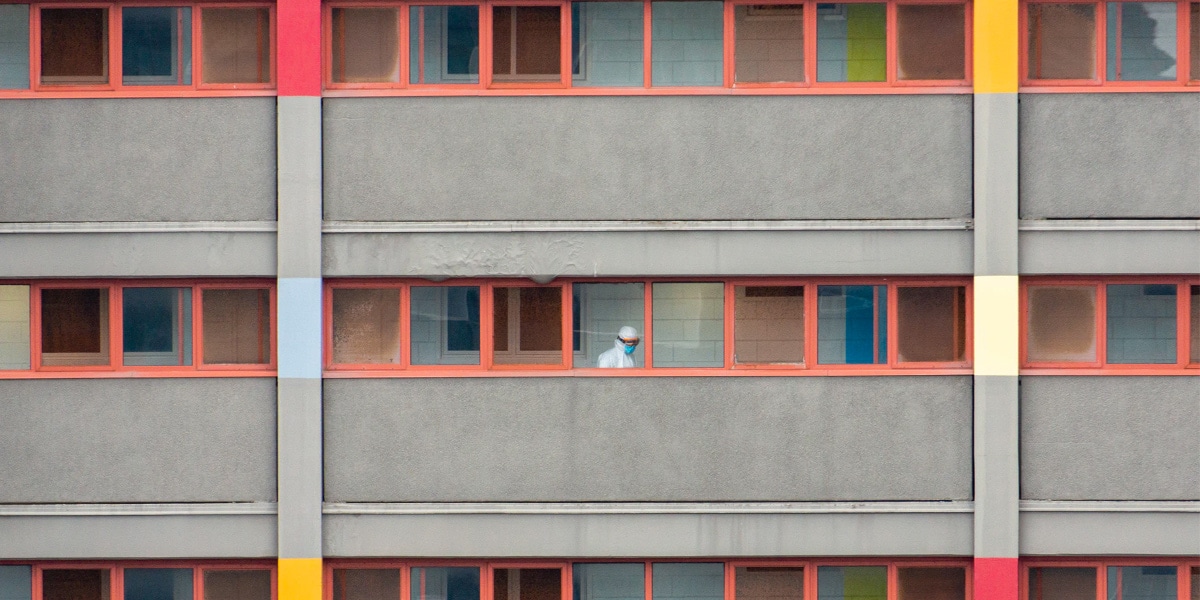
To deal with this crisis, we need to talk about ethics, not economics
Opinion + AnalysisPolitics + Human RightsRelationships
BY Matthew Beard The Ethics Centre 6 AUG 2020
As Melbourne goes into the most intense lockdown measures we’ve seen during the Covid-19 pandemic, activity in the state grinds to a halt.
In media outlets around the country, contrarian commentators are running pell-mell to explain why the lockdowns are the wrong move, and why we should be hastening to open the economy, even if it means paying a price in lives.
Others have been sprinting at a similar speed to disprove them – perhaps moving too fast, and in so doing so, having the argument on their terms.
Consider two of the loudest critics of the purpose of the lockdown: UNSW Economics professor Gigi Forster and Adam Creighton, economics editor at the Australian newspaper. Forster has argued that the costs – measured in terms of overall wellbeing – are more greatly increased by our response to Covid-19 than by the virus itself.
Creighton’s arguments are related, though he has emphasised more the difference between quantity and quality of life. On the lockdowns in Melbourne, he recently tweeted “What’s the point in being alive if you can’t live?
Shameful what’s occurring in Victoria.
Effective dictatorship declared.
Devastating, destructive power of the state on full display.
Respect for the individual clearly irrelevant.
What’s the point in being alive if you can’t live?— Adam Creighton (@Adam_Creighton) August 2, 2020
Perhaps the loudest response to each of them has been to say that a successful economic exit from the COVID-19 pandemic relies on successfully controlling the virus through measures like lockdowns, social distancing and so on. Even on economic terms, it won’t work to allow the virus to run through the community. We can’t come back economically unless we succeed medically. It’s not a zero-sum game.
I’m not the right person to decide whether or not that argument is correct. But that’s not my primary concern either. Instead, my concern is that in arguing the facts on this particular issue – that economically we are better off by controlling the spread of the virus – we have granted them their first principle. Namely, that the correct course of action is whichever one makes the most sense economically and does the most work to maximise quality of life for the largest number of people.
In granting this principle, we’re rushing over a lot of controversial territory. For instance, we might want to take issue with Creighton’s argument on other grounds – that whilst it is important to be able to live fully, in order to so, we need to be alive. The idea that ‘life is for living’ only makes sense if we also say that some people shouldn’t be permitted to stay alive. And many people won’t want to say that.
The point is, the ‘maximise wellbeing’ argument implies a harsh form of utilitarianism. It suggests we accept that there are some people who will have to pay the price for our flourishing.
Maximising benefit still leaves some people to suffer. Usually, it means leaving the same people who have suffered before to suffer again. After all, the most vulnerable already have a low quality of life, so if they end up dying, statistically speaking, it doesn’t show up as much of a loss.
When we encounter arguments like those of Creighton and Forster, we have a choice to make: what matters most to us? Is our primary concern making as many people as possible as well off as we can? Or do we to stand in solidarity with those who are worst off, and refuse to flourish at their expense?
There are schools of thought and philosophers and arguments that will give you cover whichever way you make that choice. But it is a choice to be made. We can’t just interrogate the conclusions of these arguments, we need to question their starting (and often hidden) premises.
During this pandemic we have started to see some of the hidden premises bubble to the surface. Overwhelmingly, the result has been a discomfort at the idea that we get to decide who we are willing to sacrifice for our collective benefit.
I hope that’s an idea that we remember. Because that’s not a problem that started with COVID-19. Instead, it’s a trade-off that is hard–wired into our economic system. In many ways, it’s perfectly logical to suggest we let more people die from Covid-19 if it means we all benefit. After all, it’s what we’ve always done.
We need to recognise that it’s not just people who champion beliefs and values. It’s the very systems that inform and shape our world.
If we don’t want our collective benefit to be paid for by those who most need our care, we need to do more than debate the people floating this idea. We must interrogate the system that gave rise to those views at all. We need to recognise the ways in which it is our default setting and find the courage to imagine another way of doing things.
It’s often said there are no atheists in the foxholes. It feels like there are also few nihilists in a crisis. Circumstances like these sharpen our moral intuitions and surface underlying tensions in society.
Our responsibility, as well as getting through this and getting each other through this, is to ensure that in times of comfort we retain that ethical sharpness and continue to refuse to flourish when that requires others to fail.
You can contact The Ethics Centre about any of the issues discussed in this article. We offer free counselling for individuals via Ethi-call; professional fee-for-service consulting, leadership and development services; and as a non-profit charity we rely heavily on donations to continue our work, which can be made via our website. Thank you.
Ethics in your inbox.
Get the latest inspiration, intelligence, events & more.
By signing up you agree to our privacy policy
You might be interested in…
Opinion + Analysis
Health + Wellbeing, Relationships
How to pick a good friend
Opinion + Analysis
Business + Leadership, Politics + Human Rights
Democracy is still the least-worst option we have
Opinion + Analysis
Relationships
Ethics Explainer: Peter Singer on charitable giving
Explainer
Relationships
Ethics explainer: Normativity
BY Matthew Beard
Matt is a moral philosopher with a background in applied and military ethics. In 2016, Matt won the Australasian Association of Philosophy prize for media engagement. Formerly a fellow at The Ethics Centre, Matt is currently host on ABC’s Short & Curly podcast and the Vincent Fairfax Fellowship Program Director.
BY The Ethics Centre
The Ethics Centre is a not-for-profit organisation developing innovative programs, services and experiences, designed to bring ethics to the centre of professional and personal life.
The sticky ethics of protests in a pandemic
The sticky ethics of protests in a pandemic
Opinion + AnalysisPolitics + Human RightsRelationshipsSociety + Culture
BY Simon Longstaff The Ethics Centre 31 JUL 2020
[Video Transcript]
This week has seen the unfolding of a classic ethical dilemma.
A clash between the ethics of peaceful citizens wishing to exercise their democratic right to gather in support of the Black Lives Matter movement and the ethics of medical experts, the NSW Government, the Supreme Court and the NSW Police Force – all of whom combined to prevent these same citizens from gathering together in numbers thought to represent a risk to human health and safety.
The strangest thing of all was that people on both sides of this dilemma supported the objectives of the protesters – with the Deputy Chief Medical Officer, Dr Nick Coatsworth, saying that on any other day, and in any other circumstance, he would be in the ranks of the protesters – championing their cause. Even the NSW Police Commissioner, Mick Fuller, sounded genuinely sympathetic.
So, how did people sharing so much in terms of good will find themselves so divided … and what are we to make of the merits of each side of the argument?
To say that these are extraordinary times is the understatement of the year. The second wave of infections, in Victoria, has ramped up the pressure as we witness the infection spread like wildfire. What started off as a lazy spark is now a growing conflagration – burning up the lives of the vulnerable as it spreads from hotel, to tower block, to abattoir, to aged care homes. The medical fraternity is seeing frontline staff having to withdraw to quarantine as the beds begin to fill. Meanwhile, lockdown and mounting concern is further depressing economic activity.
Is there any wonder that the authorities in NSW are desperate to prevent the same sparks from igniting here? Already, we know that the tinder is dry … with minor outbreaks flaring up across the city. Infection rates in Sydney are on the knife-edge. So when the best available medical advice was that it is too dangerous for a mass gathering of those who support the proposition that Black Lives Matter, a Supreme Court Judge ordered that the protests not proceed – not to suppress the free expression of political opinion but instead to protect the vulnerable many from the risk posed by the sincere and committed few.
Against this, the protest organisers argued that they would guarantee a safe event with people masked and physically distant. They charged the authorities with hypocrisy, pointing out that if people are allowed to travel to work or gather for church services or engage in any one of a number of other types of permitted activity, why single out and ban a protest to condemn the deaths in custody of First Nations people? It’s a good question.
Opponents to the gathering could argue that a protest is, by its very nature, an unruly venture. No one can ever know, in advance, who will turn up, in what numbers, in what mood, with what motives? Even the best organised political gathering can get out of control. It is at least arguable that there is a valid distinction to be made between protest marches and other gatherings.
Even so, it’s hard not to think that it might have been better to set clear guidelines for the gathering, and only then intervene if they were not followed. As noted above, the protest organisers were publicly committing to an event in which every person wore a mask and maintained proper distancing in a large, open air environment.
One wonders what might have been possible had the police and organisers been able to work together to uphold such standards. In those circumstances I reckon that the organisers might have been just as willing, as the police, to close down the event if their supporters failed to observe the rules.
However, we shall now never know.
Some might suggest an ulterior motive in curbing a protest about black lives and Indigenous deaths in custody. If you belong to one of the marginalised groups who have lost loved ones to the criminal justice system due to racism and prejudice, it would be easy to believe that the cancellation of a protest march is just the latest example of unjust oppression.
However, in this case, I do not think that would be a fair or accurate judgment. As I noted above, there was a palpable air of good will in support of the protesters’ objectives, if not their chosen means on this occasion.
Instead, fear of what might have happened seems to have won the day. In part, this is because the public is merciless and unforgiving whenever public officials make the slightest mistake. Again, Victoria is a case in point, with the Andrews government being hauled over the coals for its evidently ineffective management of the pandemic. I very much doubt that Daniel Andrews, or his colleagues, would be cut any slack, by the Victorian public, if they invoked arguments about democracy and free speech to defend their decision making.
NSW Premier, Gladys Berejiklian, would have this example in mind, concluding that few politicians are ever punished for going overboard on public health and safety. More’s the pity.
In my opinion, politicians should be held to equal account for going further than is reasonable or proportionate -especially because of the implications on civil liberties, not least for especially vulnerable and disenfranchised groups. Governments that curb the liberty of citizens should only do so for reasons of necessity, and then only in a manner that is reasonable, proportionate and equitable. Yet, rarely do we see such standards being invoked by a fearful public.
There is a fine line between genuinely protecting the public from harm and constraining the democratic rights of citizens; there is a fine line between exercising those rights and avoiding preventable harm to others.
Ideally, one limits those rights to the bare minimum necessary to secure the public good. It is an open question as to whether or not that occurred in this case.
You can contact The Ethics Centre about any of the issues discussed in this article. We offer free counselling for individuals via Ethi-call; professional fee-for-service consulting, leadership and development services; and as a non-profit charity we rely heavily on donations to continue our work, which can be made via our website. Thank you.
Ethics in your inbox.
Get the latest inspiration, intelligence, events & more.
By signing up you agree to our privacy policy
You might be interested in…
Opinion + Analysis
Business + Leadership, Society + Culture
Access to ethical advice is crucial
Opinion + Analysis
Relationships, Society + Culture
Barbie and what it means to be human
Opinion + Analysis
Politics + Human Rights
How far should you go for what you believe in?
Opinion + Analysis
Politics + Human Rights, Relationships
A new era of reckoning: Teela Reid on The Voice to Parliament
BY Simon Longstaff
Simon Longstaff began his working life on Groote Eylandt in the Northern Territory of Australia. He is proud of his kinship ties to the Anindilyakwa people. After a period studying law in Sydney and teaching in Tasmania, he pursued postgraduate studies as a Member of Magdalene College, Cambridge. In 1991, Simon commenced his work as the first Executive Director of The Ethics Centre. In 2013, he was made an officer of the Order of Australia (AO) for “distinguished service to the community through the promotion of ethical standards in governance and business, to improving corporate responsibility, and to philosophy.” Simon is an Adjunct Professor of the Australian Graduate School of Management at UNSW, a Fellow of CPA Australia, the Royal Society of NSW and the Australian Risk Policy Institute.
BY The Ethics Centre
The Ethics Centre is a not-for-profit organisation developing innovative programs, services and experiences, designed to bring ethics to the centre of professional and personal life.
Stop giving air to bullies for clicks

Stop giving air to bullies for clicks
Opinion + AnalysisPolitics + Human RightsRelationshipsSociety + Culture
BY Simon Longstaff The Ethics Centre 31 JUL 2020
By now, most people will have heard of the antics of the person who berated staff at Bunnings – simply because the staff insisted that she wear a mask before entering the store.
As is common these days, the altercation was filmed on someone’s phone and uploaded to social media channels. However, the story also captured the attention of mainstream media. What would normally have been an incident of minor importance soon became a topic of the national conversation – bringing fame (or infamy) to the antagonist.
I do not want to add to this person’s unwarranted celebrity. In part, this is because I do not think people should be rewarded for being rude and aggressive. In part, it is because I do not want to fuel further interest in ideas that are not just wrong – but dangerously so.
Instead, I want to focus on two issues of relevance to the media. First, should oxygen be given to people and ideas that do not deserve the public’s attention? Second, how can we avoid causing unintended harm done to people who have legitimate reasons for not wearing face masks – but who are made to feel like a pariah for not doing so?
The first of these issues is one of general concern. Naturally enough, the media is keen to cover stories that engage the interest of their audience. This is perfectly understandable in a context where maintaining audience numbers is critical to survival. People want to hear about the extraordinary. However, there are times when giving people what they want is not in their interest – a principle that holds for individuals as it does for wider society. An alcoholic might want another drink – but it is not in their interest to give them one!
The world abounds with crackpots, conspiracy theorists – and the like. At one level, it is easy to dismiss them as a part of a radical fringe whose ludicrous beliefs are merely entertaining. However, we should never underestimate the ability of such groups to wheedle their way into the public consciousness – even to the point where what seems to be extreme on one day eventually becomes commonplace … just part of the background beliefs of our time. We have seen this in the case of anti-vaxxers, or the people who believe that infection rates for COVID-19 are linked to 5G telephone towers, or that one’s gender or race determines character … and so on.
As noted above, some of these ideas can be explosive in their effects … with the potential for damage easily predicted. Yet, if the proponents are sufficiently weird, wonderful or compelling, then there is a chance that their views might be amplified by a media seduced by the novelty of what is being presented. This is not to suggest that the media approves of the ideas it promotes. If anything, most outlets probably assume that wacky ideas are pure entertainment – that no one will actually be seduced by ridiculous ideas. Unfortunately, history is full of examples of improbable beliefs becoming embedded in ‘mainstream’ ideologies.
This is not to suggest that the media should never cover stories like the incident at Bunnings. However, I think a decision to tell such a story comes with an additional obligation explicitly to discount the validity of claims that are false and misleading. That is, there are times when just reporting the facts will not be enough. Instead, editorial judgement needs to be brought to bear.
The application of judgement is also required in minimising the unintended, adverse effects of moderating opinion about matters like the wearing of face masks during a rampant pandemic. The person at Bunnings objected to wearing a mask as if to do so was some kind of violation of basic human rights. Those arguments were singularly poor – and potentially dangerous – as they uncritically undercut most efforts to preserve the health and safety of the community. However, there could have been another person – perhaps suffering from a medical condition – for whom not wearing a mask is a matter of necessity (not choice). The arguments of that person deserve to be taken seriously.
While it is important to repudiate the crackpots, we should do so with a care not to inflame public prejudice of a kind that discounts every objection as invalid. Some people have perfectly good reasons for not conforming to accepted norms that are justifiable in general.
The bully at the Bunnings door did little to advance the public debate about the rights and responsibilities of citizens and the community. But perhaps she has done some good – in prompting further reflection about what, when and how the media chooses to amplify through its channels.
This article was first written for, and published by Crikey. It has been republished here with permission.
You can contact The Ethics Centre about any of the issues discussed in this article. We offer free counselling for individuals via Ethi-call; professional fee-for-service consulting, leadership and development services; and as a non-profit charity we rely heavily on donations to continue our work, which can be made via our website. Thank you.
Ethics in your inbox.
Get the latest inspiration, intelligence, events & more.
By signing up you agree to our privacy policy
You might be interested in…
Opinion + Analysis
Health + Wellbeing, Society + Culture
Does ethical porn exist?
Opinion + Analysis
Politics + Human Rights
Why compulsory voting undermines democracy
Explainer
Relationships
Ethics Explainer: Ethics of Care
Explainer
Relationships
Ethics Explainer: Hope
BY Simon Longstaff
Simon Longstaff began his working life on Groote Eylandt in the Northern Territory of Australia. He is proud of his kinship ties to the Anindilyakwa people. After a period studying law in Sydney and teaching in Tasmania, he pursued postgraduate studies as a Member of Magdalene College, Cambridge. In 1991, Simon commenced his work as the first Executive Director of The Ethics Centre. In 2013, he was made an officer of the Order of Australia (AO) for “distinguished service to the community through the promotion of ethical standards in governance and business, to improving corporate responsibility, and to philosophy.” Simon is an Adjunct Professor of the Australian Graduate School of Management at UNSW, a Fellow of CPA Australia, the Royal Society of NSW and the Australian Risk Policy Institute.
BY The Ethics Centre
The Ethics Centre is a not-for-profit organisation developing innovative programs, services and experiences, designed to bring ethics to the centre of professional and personal life.
It takes a village to raise resilience

It takes a village to raise resilience
Opinion + AnalysisRelationships
BY Matthew Beard The Ethics Centre 28 JUL 2020
Several years ago, I was participating in a workshop around moral injury and war trauma in veterans.
A veteran detailed a horrific experience where through a combination of fatigue, bureaucracy and bad decision-making, he had left a reported IED to be defused by local forces, knowing full well it wouldn’t happen. His team had just come in after a long stint and were due for leave that day. He wanted to protect them from further burnout.
Tragically, a civilian convoy hit the IED, and this soldier suddenly saw his base flooded with injured, dying and dead civilians – harmed by an IED he ordered his team to leave for someone else.
The soldier detailed how his life had subsequently progressed. He was discharged from the army, became homeless, turned to substance abuse and lost just about everything before slowly rebuilding the broken pieces of his life. He was in a stable relationship, had secure work and was working with therapists to process what had happened.
After his presentation, the man left and the academics did what academics do: they debriefed and discussed his situation. The direction of the conversation was largely around what we could do to ensure that what happened to this person didn’t happen to other people. How could we provide a level of mental and moral resilience, such that these things wouldn’t be so damaging to warfighters?
For me, this question completely misunderstood the problem. This wasn’t a story about a lack of individual resilience. It was a conspiracy of systemic errors, tragedy and moral complexity.
Look at the systemic factors at play. First, there were problems with the local military operations that meant this soldier’s team were shouldering too much of the load. Second, deployment times and handovers weren’t designed in a way to ensure that teams were refreshed or replaced in a timely enough fashion to ensure they could do their jobs. Third, a lack of adequate mental health support on re-entry led to the soldier being dishonourably discharged. Fourth, bureaucratic issues in the funding for discharged veterans meant enormous loads of paperwork for a man suffering PTSD and therefore unlikely to be able to get through the tedium of such tasks. This is before we consider the moral and political complexities of the war in Afghanistan, where the soldier was deployed.
It is often said of PTSD that it is an ordinary response to extraordinary circumstances. I would argue that similar can be said for the kind of moral distress this soldier was feeling – his sense of responsibility, guilt and complicity was painful, but in some ways normal – even healthy.
His suffering is a recognition that he was caught up in events that mattered, and that his role in them also mattered. To suggest that what he needed was moral resilience seems to miss the point: his feelings weren’t the primary problem. The failure of his environment to support him during those feelings was.
I found myself thinking back to this conversation last week, when ABC Chair Ita Buttrose’s comments about millennial workers went public. In a Chatham House Rule conversation, Buttrose allegedly said that millennial workers “seem to lack the resilience that I remember from my younger days.”
“They’re very keen on being thanked and they almost need hugging – that’s before COVID of course, we can’t hug any more – but they almost need hugging.”
These comments are consistent with a particularly individualistic view of resilience that has become commonplace in workplace training, some forms of mental health coaching and – yes – in parenting circles. It’s an approach that treats resilience as a virtue – a character trait that marks a person as morally good.
To some extent, resilience is a virtue. A range of traditions, most notably Buddhism and Stoicism – recognise that a great deal of suffering is the product of the way we think about problems. We can be too attached to things that don’t matter and tend to catastrophise when things go wrong.
Overcoming this tendency is important. In an era where we face persistent, large-scale challenges like climate change, we need to be resilient. At times, we aren’t, through nothing more than what Aristotle called akrasia – weakness of will. However, we make a mistake when we see any evidence of a lack of resilience as an individual failing. In blaming the individual, we excuse the system.
For example, millennials working at Buttrose’s ABC have faced round after round of redundancies, intense political scrutiny and a heavily disrupted industry in recent years. As former ABC journalist Sophie McNeill wrote, “Lack resilience? How insulting. Us millennials at the ABC were usually paid less but expected to do so much more than many of our older colleagues, plus many are on insecure contracts for years.”
Lack resilience? How insulting. Us millennials at the ABC were usually paid less but expected to do so much more than many of our older colleagues, plus many are on insecure contracts for years – @ItaButtrose clearly needs to go & meet more of them https://t.co/TFf2SW5xFg
— Sophie McNeill (@Sophiemcneill) July 22, 2020
Resilience is a conditional good. Whether or not resilience is a good thing depends on what we’re being resilient to. If an employee is experiencing workplace harassment, is routinely looked over for promotion because of their race or gender, or has their labour rights undermined, we shouldn’t tell them to be resilient to it. We should encourage them to feel let down, wronged and betrayed – and to use those feelings as a spur to demand better treatment.
Just like the story of the soldier, we can see that young workers today face a complex system of different forces. Asking them to be more resilient or painting their struggles as a lack of resilience – a kind of moral failing – paints over the underlying problems rather than addressing them.
This isn’t to undercut or eliminate the importance of personal virtue and individual resilience. Sometimes, people will get comfortable. They may need to push a bit harder or learn to deal with hardship, and they should be encouraged to do so. Good leadership will help them in that project. In other cases, systems might be so oppressive as to prevent people from speaking out or demanding redress. Here, there is a very different role for resilience – it becomes a crucial survival tool, but one we should feel ashamed is necessary.
Framing resilience as an individual virtue also misses a range of things we can do to support people in difficult situations. Rather than expecting people to tough it out alone, seeing resilience as a systemic problem means understanding that it will need a collective solution.
It requires – as it always has – for people to lean on one another, to build supportive environments and, yes, the occasional hug. Requiring these things doesn’t demonstrate a lack of resilience – they are themselves acts of resilience. They are ways of enduring in situations that are challenging, stressful and difficult.
When we think of resilient communities, cities and workplaces, the people who are struggling aren’t problems that need to be fixed, they’re the canaries in the coal mine. When people aren’t flourishing, it’s not a sign they’re weak or broken. It’s usually a sign the environment they’re in is generating feelings of stress and burnout rather than helping them to cope.
Solving that problem doesn’t look like a pointed finger, it looks like a helping hand.
You can contact The Ethics Centre about any of the issues discussed in this article. We offer free counselling for individuals via Ethi-call; professional fee-for-service consulting, leadership and development services; and as a non-profit charity we rely heavily on donations to continue our work, which can be made via our website. Thank you.
Ethics in your inbox.
Get the latest inspiration, intelligence, events & more.
By signing up you agree to our privacy policy
You might be interested in…
Big thinker
Relationships
Big Thinkers: Laozi and Zhuangzi
Opinion + Analysis
Health + Wellbeing, Relationships
The etiquette of gift giving
Opinion + Analysis
Relationships
In two minds: Why we need to embrace the good and bad in everything
Opinion + Analysis
Health + Wellbeing, Relationships
Anthem outrage reveals Australia’s spiritual shortcomings
BY Matthew Beard
Matt is a moral philosopher with a background in applied and military ethics. In 2016, Matt won the Australasian Association of Philosophy prize for media engagement. Formerly a fellow at The Ethics Centre, Matt is currently host on ABC’s Short & Curly podcast and the Vincent Fairfax Fellowship Program Director.
BY The Ethics Centre
The Ethics Centre is a not-for-profit organisation developing innovative programs, services and experiences, designed to bring ethics to the centre of professional and personal life.
Punching up: Who does it serve?
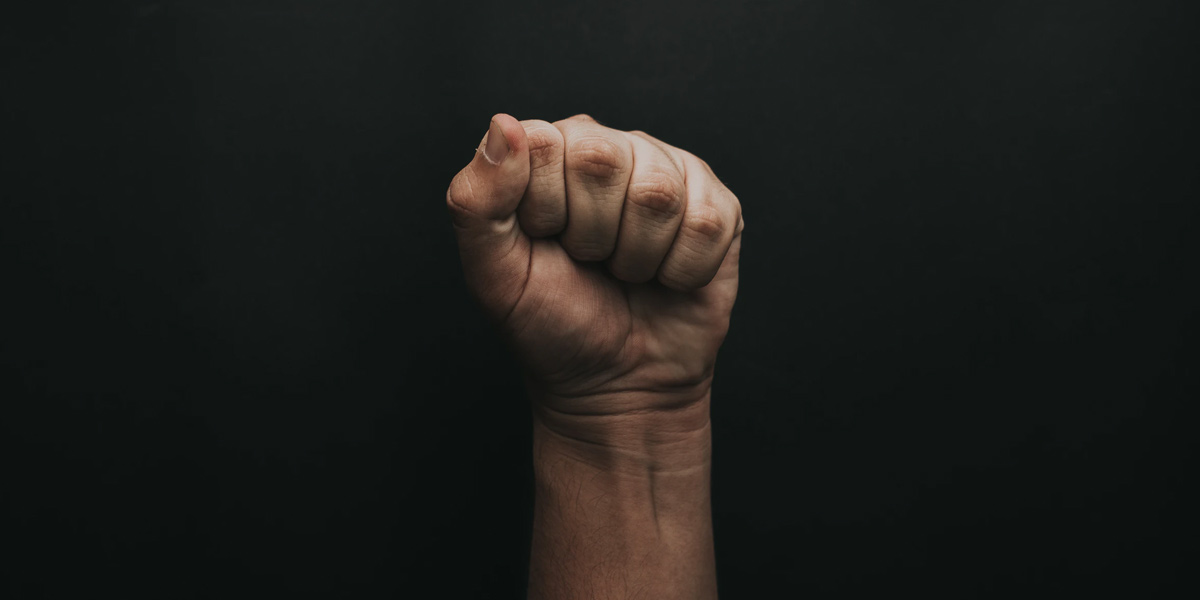
Punching up: Who does it serve?
Opinion + AnalysisPolitics + Human RightsRelationshipsSociety + Culture
BY Simon Longstaff 24 JUL 2020
I recently watched Hannah Gadsby’s comedic tour-de-force, Douglas. It is sharp and provocative – but wonderfully insightful. In the course of her performance, Hannah explains that she applies to her humour the principle of ‘punching up’.
It is an approach employed by comics when deciding who is a legitimate target for ridicule and satire. The idea is pretty simple, it’s fine to take aim at someone who is more powerful than you – but never those who are relatively weaker. The operating assumption is that the powerful are unlikely to be harmed by a bit of fun at their expense, while the weaker have suffered enough without having to cope with a comic’s insults.
The idea of ‘punching up’ seems to have taken on a life beyond the world of comedy. More generally, those who stand higher up the ladder of power and privilege are now expected to accept, without retaliation or reproach, whatever comes their way from those located on lower rungs of the ladder. Sitting at the top are cis-gendered, white men, like me. If we complain, then this is just evidence of our ‘thin skin’ and an inability to take a serving of what we have been dishing out for millennia.
It is easy to identify who is currently at the top of the ladder. However, beyond that point, working out the relativities of who is ‘up’ or ‘down’ becomes increasingly difficult. After all, there is no natural hierarchy of power, privilege, disadvantage or subjugation.
Instead, positions change as the wheel of history turns – with some groups ascending at one point only to see their position reversed at another. For example, consider the case of the Aztecs. Prior to the arrival of the Spaniards, they commanded an empire built on the conquest, enslavement and ritual sacrifice of those who fell under their sway. Yet, today, their descendants are a dispossessed people with an extraordinarily resilient culture that has survived centuries of attempted suppression by their colonisers.
So, who gets to ‘punch up’ (or be ‘punched’) is relative to time and culture. The role of being a priestess can be at the apex of power and influence in one setting but marginalised in another. A banker can be reviled as a ‘usurer’ in the past only to be celebrated by future generations.
However, that’s not where the relativities end. Conduct that is condoned in one case will be condemned in another – even though the things done are identical. For example, what is praised as being ‘forthright’ in a man has often been criticised as ‘aggression’ in a woman. Asymmetry of judgement also applies in the context of ‘punching up’. Behaviour that is justifiably condemned in a powerful person is often excused or ignored if practiced by a relatively powerless individual.
So, what are we to make of this? First, let’s acknowledge that there are some individuals and groups who have been systematically marginalised, over such a long period of time, as to deserve the opportunity to ‘even things up’ in any contest. Only those blinded by prejudice would deny this to be so.
However, this is not to say that relative historical disadvantage should excuse anything done – just as long as it is directed at the relatively powerful. A person fighting a stronger adversary may pick up a stick to ‘even the odds’ – but it would be wrong for them to attack an unarmed person with a firearm. To do so would involve a disproportionate use of force.
Likewise, I think it wrong to belittle or vilify a person (any person) in a deliberate attempt to wound them with words. That is not comedy – it is abuse. Comics make a person uncomfortable as a way of drawing attention to an issue of underlying importance – but their aim is not (and should not be) to harm. To do otherwise is to adopt the stance of the bully … which is wrong whatever one’s relative position in life.
I realise that it is easy to recommend restraint when one belongs to a powerful or privileged group – as I do. However, I am not a supporter of relativism in ethics (or elsewhere). To wound another – willfully or recklessly – is wrong.
The fact that it occurs as a result of anger or frustration might explain such behaviour – but it does not justify it. I know that this will be a view unpopular with those who have a taste for revenge – who believe in the proverbial ‘eye for an eye, tooth for a tooth’. However, I prefer the position of the Reverend Dr Martin Luther King Jr. who wrote that:
“Violence as a way of achieving racial justice is both impractical and immoral. It is impractical because it is a descending spiral ending in destruction for all. The old law of an eye for an eye leaves everybody blind. It is immoral because it seeks to humiliate the opponent rather than win his understanding; it seeks to annihilate rather than to convert.”
Yes, great wrongs need to be made right – but justice cannot be produced by injustice.
So, does this load the greater obligation onto the shoulders of those who have traditionally been on the wrong end of the stick? On the contrary, those of us who enjoy the greatest power and privilege should accept the greatest obligation to act ethically … not least because we have the capacity to do so.
We should begin by recognising and redressing the disparities of our day; we should acknowledge that we did not earn our privileged position – but were simply lucky enough to be born blessed with opportunity. It is not out of guilt, but with a sense of justice, that we should seek to redress historical and contemporary sources of inequity.
Perhaps then the urge to punch will eventually be assuaged, and something better – that could never have grown in the soil of anger and resentment – can emerge to see the light of day.
Ethics in your inbox.
Get the latest inspiration, intelligence, events & more.
By signing up you agree to our privacy policy
You might be interested in…
Opinion + Analysis
Politics + Human Rights
Australia Day and #changethedate – a tale of two truths
Opinion + Analysis
Business + Leadership, Relationships
Treating citizens as customers is a recipe for distrust
Opinion + Analysis
Relationships
In two minds: Why we need to embrace the good and bad in everything
Opinion + Analysis
Relationships







